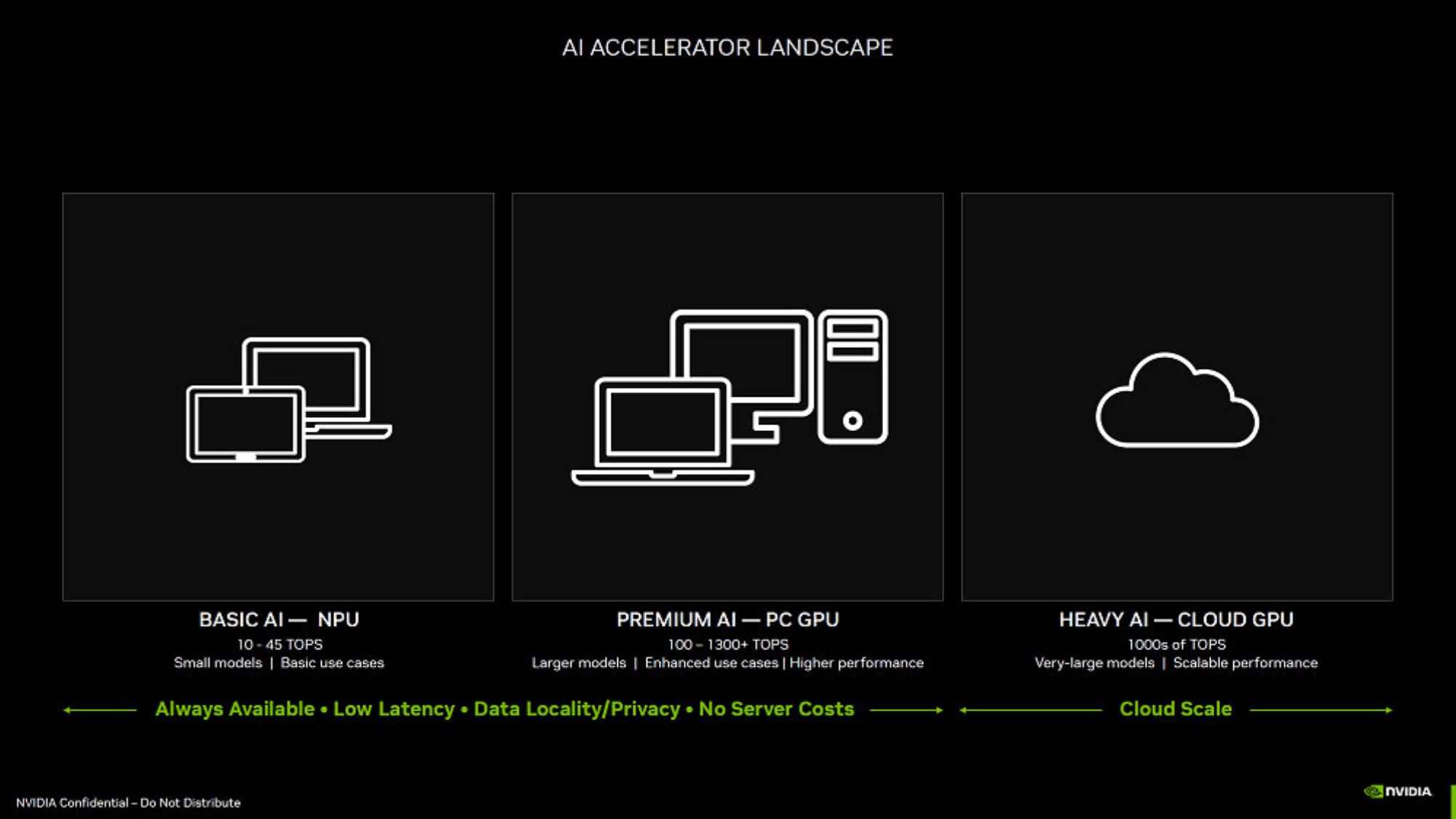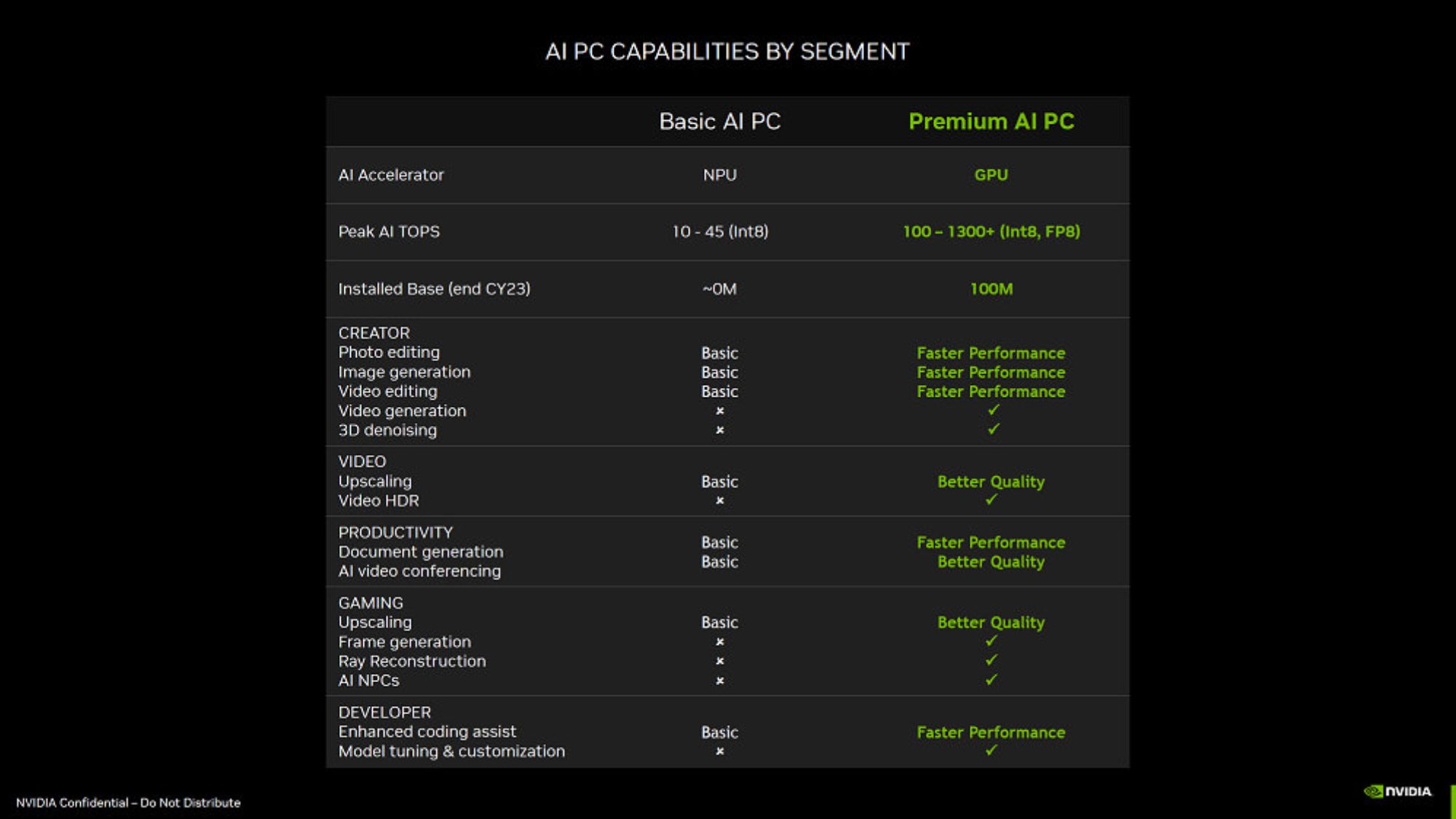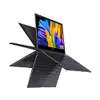Leaked slides hint at how Nvidia views its AI PCs against the competition
Could GPUs be the basis of "Premium AI"? Nvidia seems to think so.

Microsoft recently defined an "AI PC" as one that has the AI-accelerating Neural Processing Unit, or NPU, chip, along with the latest CPUs and GPUs. It also would need access to Copilot, with a dedicated Copilot key on the keyboard.
But according to alleged presentation slides from Nvidia, these requirements from Microsoft simply outline a "basic AI PC," not a "premium AI PC" that'd be possible with a powerful discrete GPU.
The presentation slides were leaked to the China-based site BenchLife.info and marked with "Nvidia Confidential — Do Not Distribute" in the corner, but there's no way to verify their legitimacy. That said, the slides differentiate basic and premium AI PCs with peak AI TOPS metrics and dive into the ways a premium AI PC could outperform a basic alternative.
Are discrete GPUs better for AI performance than NPUs?
While this might seem like a simple marketing ploy for Nvidia to sell more RTX GPUs, it's not. Of course, touting Nvidia RTX-powered computers as "premium AI PCs" is a self-serving marketing move. Still, discrete GPUs have more computing capability than NPUs right now — Nvidia's right about that.
According to one leaked slide, a basic AI PC utilizes an NPU as the AI accelerator, capable of 10 to 45 TOPS (Tera Operations Per Second). In contrast, a premium AI PC uses a discrete GPU capable of 100 to over 1,300 TOPS. Then, a heavy AI PC is capable of "1000s of TOPS" with a cloud GPU — another product that Nvidia currently sells.

While there's no way to confirm whether these slides are legitimate—short of Nvidia confirming it—the information presented in the slides doesn't seem far-fetched. Using a discrete GPU as an AI accelerator rather than an NPU will allow for faster photo and video editing and a higher-quality gaming experience, among other things, but there's a catch.

Generally, computers with discrete GPUs are more expensive than those with integrated graphics. If NPUs are the only way to bring on-device AI to PCs without increasing their price, that might be why Microsoft is choosing to push "basic" AI PCs right now.
Sign up to receive The Snapshot, a free special dispatch from Laptop Mag, in your inbox.
So, while computers with an RTX GPU from Nvidia might be the more "premium" AI pick, they might not be accessibly priced compared to "basic" options. But for someone who plans to play games on their laptop, the extra cost for a discrete GPU might be more justified by a boosted AI experience.

Sarah Chaney is a freelance tech writer with five years of experience across multiple outlets, including Mashable, How-To Geek, MakeUseOf, Tom’s Guide, and of course, Laptop Mag. She loves reviewing the latest gadgets, from inventive robot vacuums to new laptops, wearables, and anything PC-related. When she's not writing, she's probably playing a video game, exploring the outdoors, or listening to her current favorite song or album on repeat.









